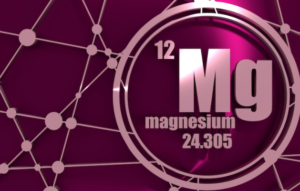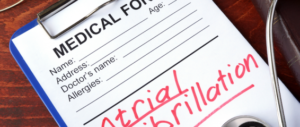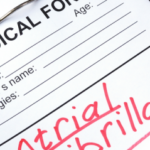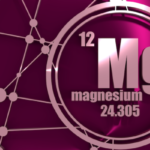 Magnesium deficiency can cause a whole host of issues in the body that can mimic other ailments and is often missed. If you are feeling under the weather and can’t figure out why it’s important to find a good nutritionist who really understands physiology and nutrition who can work with you.
Magnesium deficiency can cause a whole host of issues in the body that can mimic other ailments and is often missed. If you are feeling under the weather and can’t figure out why it’s important to find a good nutritionist who really understands physiology and nutrition who can work with you.
Though you can become deficient in a multitude of minerals today lets focus on magnesium.
Magnesium is sometimes referred to as the “Master Mineral”. It has earned this nickname because it is responsible for several hundred metabolic processes in the body.
Having a deficiency in magnesium can cause health issues that can masquerade as other problems so you might not figure it out easily.
Why is Magnesium important?
Magnesium is necessary for the proper transportation of calcium throughout the body. Calcium needs other nutrients such as Magnesium, Silica, Vitamin D, Vitamin K that help allow it to become one with bone. Excessive calcium intake has been linked to heart health issues because it stays in the blood rather than being absorbed into the bone as intended and ends up calcifying into arterial plaque.
Magnesium plays a part in numerous parts of the body. It is an anti-inflammatory mineral, which offers protection against illnesses like Alzheimer’s, arthritis, high blood pressure, respiratory issues, diabetes and more. In many cases, just raising magnesium levels can have a profoundly positive effect.
Are you showing Magnesium Deficiency Symptoms?
You may experience the following alone or in combination as signals:
- Inability to sleep or insomnia
- Irritability
- Sensitivity to noise
- Mental disturbances
- Anxiety, depression or restlessness
- Muscle soreness or spasms
- Infertility or PMS
- High levels of stress
- Headaches
- Heart “flutters” or palpitations
- Fatigue or unusual tiredness
- Coldness in extremities
- Fuzzy brain or difficulty concentrating
- Allergies and sensitivities
- Lack of appetite
- Back pain
- Body odor
- Bad short term memory
- Poor coordination
- Insulin resistance
- Carbohydrate cravings
- Constipation
- Frequent cavities or poor dental health
- Gut disorders
- Kidney stones
- Thyroid problems
- Confusion
- Dizziness
- PMS symptoms
What causes a magnesium deficiency?
Because of modern farming methods, our soils are depleted of not only magnesium but also many other trace minerals that used to be present. The Recommended Daily Allowance for magnesium is 240 to 420 milligrams. *Some doctors feel it should be nearly double the RDA.
Your doctor can test your Magnesium levels by using an Exa Test™. Blood tests alone are not generally accurate because magnesium works inside your cells, not just in the bloodstream.
Even if you are not able to visit a doctor, paying attention to your body can alert you to the need for extra magnesium supplementation.
Other causes of depletion can include:
- Eating processed food (depleted of minerals)
- Drinking alcohol
- Drinking fluoridated water
- Sugar
- Caffeine
- Drugs like birth control pills, hypertension medicine, diuretics, insulin, and certain antibiotics
So you think you might have a deficiency… Now what?
There are a few options!
1. Up the amount of magnesium-rich foods, you eat in your diet.
- Almonds
- Squash
- Spinach
- Cashews
- Black beans
- Sunflower seeds
- Sesame, Pumpkin, Sunflower seeds
- Brown Rice
- Okra
- Avocados
- Bananas
- Dried Figs
- Dark Chocolate
2. Supplement – Magnesium Citrate is among the most readily absorbed forms of Magnesium. *If you experience an irregular heartbeat, slowed breathing or diarrhea lower the dosage. (This is rare and usually will only happen if you consume a great deal of magnesium, but its good to be aware).
3. Transdermal Magnesium (absorbed through the skin) – Magnesium Chloride, also known as Magnesium Oil, is not actually oil but a slippery brine solution taken from sea beds. It comes in a handy spray bottle and is very good for your skin as well.
Magnesium applied directly to the skin alleviates chronic pain and muscle cramps.
*A note on using this: If you are deficient, it can actually sting a little bit after or during application. It is very salty and can leave a white chalky film on your skin and a funny feeling residue. It is advisable to either use it before bedtime or to spray it on, leave for a good 20 minutes to allow it to soak in, then re-shower before getting dressed.
If Magnesium Deficiency is indeed causing you physical issues, once you begin supplementing you should begin to notice a difference within a matter of days.
If symptoms persist even though you are getting more Magnesium, you may want to seek medical advice.
If you happen to be in the Fort Myers, FL area please call the office of Dr. Jason Kaster, D.C. at 239-332-2555 or visit www.drkasters.com for more great health information!
 When we are younger we feel immortal, like nothing can touch us and we will live forever. Our health is generally good. The thing is, health conditions like Afib (atrial fibrillation) can strike at just about any age.
When we are younger we feel immortal, like nothing can touch us and we will live forever. Our health is generally good. The thing is, health conditions like Afib (atrial fibrillation) can strike at just about any age.

 The answer is YES sugar can harm your heart when eaten in excess.
The answer is YES sugar can harm your heart when eaten in excess.
 Magnesium deficiency can cause a whole host of issues in the body that can mimic other ailments and is often missed. If you are feeling under the weather and can’t figure out why it’s important to find a good nutritionist who really understands physiology and nutrition who can work with you.
Magnesium deficiency can cause a whole host of issues in the body that can mimic other ailments and is often missed. If you are feeling under the weather and can’t figure out why it’s important to find a good nutritionist who really understands physiology and nutrition who can work with you.
 It’s late. You are exhausted. You want nothing more than a good nights rest.
It’s late. You are exhausted. You want nothing more than a good nights rest.
 Oregano is a member of the mint family. It has often been nicknamed nature’s most potent antiseptic and described as one of the strongest known anti-inflammatory substances. Oregano oil has powerful anti-viral properties. In terms of reversing pain and inflammation; it has nearly the same power of morphine. Yet it remains relatively unknown.
Oregano is a member of the mint family. It has often been nicknamed nature’s most potent antiseptic and described as one of the strongest known anti-inflammatory substances. Oregano oil has powerful anti-viral properties. In terms of reversing pain and inflammation; it has nearly the same power of morphine. Yet it remains relatively unknown.